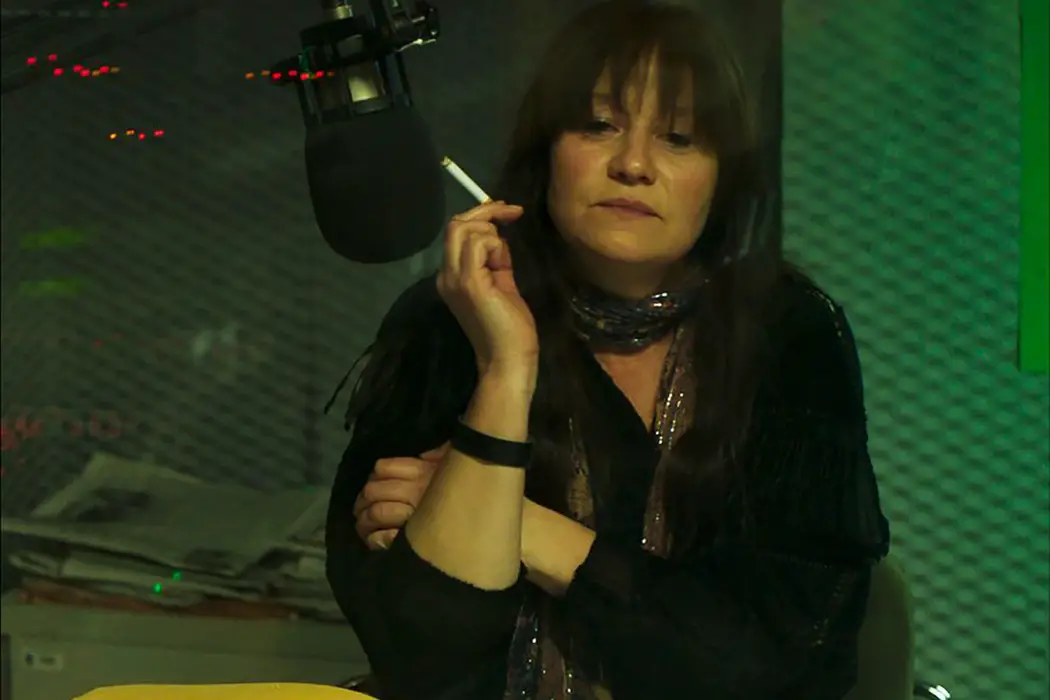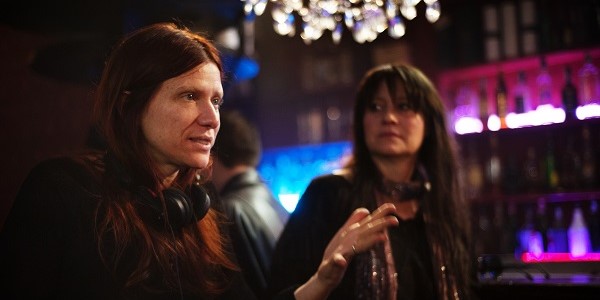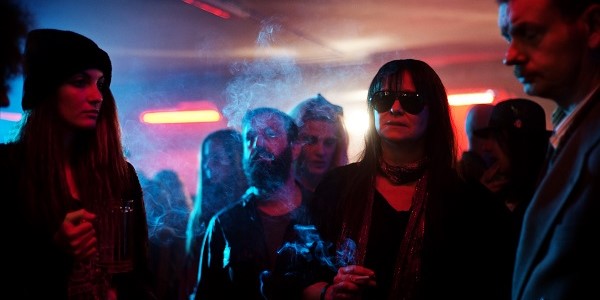NICO, 1988: Interview With Writer/Director Susanna Nicchiarelli & Star Trine Dyrholm

Lives by the sea in south-east England, with his wife,…
“Nico was shaped very much by the way history impacted her personal life,” Susanna Nicchiarelli says of the late singer, actress and model, whose final years she depicts in the biopic Nico, 1988. “She lost her dad at war and grew up in Nazi Germany. She lived the shame of being German and what the Nazis did.
“I also find it touching that she died a year before the end of the Cold War [in 1989] and wasn’t able to witness her people reunited. That is one of the reasons why the film’s title is Nico, 1988 – [it’s about] history participating in this woman’s life.”
Forged by war and division, the former Velvet Underground chanteuse certainly makes for a challenging biopic subject – perhaps not Ty Cobb or Jeffrey Dahmer challenging, but far from easy nonetheless. Yes, Nico had a fascinating life full of stratospheric highs, crashing lows and melodrama by the bucketload. But she was also a notoriously difficult woman; a committed heroin addict, alleged racist and anti-Semite, who has even been accused of getting her vulnerable son, Ari, hooked on the same drug that took such a toll on her own health. Musically, she’d drifted into obscurity long before her death at the age of 49.
An ugly existence
Making such a divisive figure worthy of an audience’s time is a tough job for any filmmaker, but somehow Nicchiarelli manages to do just that in her sad, elegiac, warts-and-all retelling of the final two years of the singer’s life. She sets out to rehabilitate Nico as an artist, a woman and a mother and – helped in no small part by Trine Dyrholm’s convincing turn as the titular character – succeeds admirably. Is it a revisionist take on the former Warhol muse’s life? A little, but Nicchiarelli mostly avoids prettifying what was, at times, an ugly existence.
“I never tried to make her likeable in the movie – I didn’t want to justify her, I didn’t want to try and find something she was not,” the Italian writer/director tells me down a phone line from New York. “The biggest challenge was to make a movie about someone who is not likeable and hope the audience will still somehow connect with them.”
“We approach her very slowly and don’t force the audience into identifying with her. In the script, I put all these people around her that help you approach her – these are all characters that I met and interviewed. In the first part of the movie, we see Nico through their eyes mostly and then slowly we come into communication with her.”

The film concentrates on the final two years of Nico’s life, when she lived in Manchester, northern England, and toured extensively across Europe with a young backing band. Apart from the music and the drugs, it’s not what you expect from a Nico biopic, which most filmmakers would have filled to the brim with ‘60s New York, Andy Warhol, and Lou Reed.
“I strongly believe that the best biopics are the ones that choose to tell only part of the story,” says Nicchiarelli, now on her third feature after fabulous coming-of-age tale Cosmonaut (2009) and 2012’s Discovery At Dawn (La Scoperta Dell’alba). “By telling a part of somebody’s life you’re giving a picture that is much more complete than by telling the whole story. Nico really found herself in her forties – she understood what her place was artistically and creatively, what kind of music she wanted to do.”
“It was also in her forties that she found the strength to quit heroin. She was able to recreate her relationship with her son, with whom she had lost contact in the ’70s, because he had grown up with his grandparents. So, everything was pointing to that time, and telling me it was the most interesting.”
Wayward pop star lifestyle
Nicchiarelli’s focus, for the most part, is the singer’s complicated relationship with her son, Ari (played in the film by Sandor Funtek). Fathered by Alain Delon, the celebrated French actor who starred in Le Samouraï and L’Eclisse, Nico gave him up as a child when her wayward pop star lifestyle precluded her from properly looking after him, a decision that constantly haunts the singer in the film.
“The meeting with [the real-life] Ari was pretty important for me and I spent a long time with him,” Nicchiarelli says. “Ari was emotionally very intense because the way he spoke about his mum proved he was totally and unconditionally in love with this woman.”
“Ari was the man of Nico’s life. People talk about Nico in other biopics and she sleeps with famous men – that seems to have been the only importance she had. But it’s not true because her life was a lot more interesting than that. What I really think is that, in the end, the only man in her life was her son.”

If there is perhaps one area in which Nicchiarelli’s film gives Nico’s bad behaviour too much of a free pass it is in relation to the allegations of racism and anti-Semitism that dogged the singer. There was one infamous incident in the early ’70s when Nico allegedly attacked a mixed-race woman at the Chelsea Hotel with a broken wineglass, shouting: “I hate black people”.
“They [the accusations] are based on very slim evidence,” says Nicchiarelli, who proves a combative advocate for her subject’s essential decency. “She had a fight with a woman in a bar, and Nico said something about her being black, which is horrible, of course. But it was the ’70s and Nico was totally stoned, and it was the worst period of her life. I don’t think it [racism] was something she believed in because there was nothing in her life that proved she was a racist. She slept with all kinds of people and had all kinds of friends.”
“Of course, she was provocative – if she sang in Germany, she would say things about the German terrorist group – Baader-Meinhof – she would say things to see where the limit was. She was trying to be politically incorrect.”
Existential loneliness
Like Nico, Dyrholm has enjoyed some success as a singer too. In 1987, when she was only 14 years old, the actress fronted a band called Trine & The Moonlighters, who came third in Denmark’s search to find a song for that year’s Eurovision Song Contest. Later, in the early 2000s, she had a massive hit in her homeland with an EP – Mr. Nice Guy – that stayed at No.1 for a mindboggling 62 weeks. I wondered if her experiences as a pop star helped prepare her for taking on the role.
“I did three records and went on tour with a band that was older than me,” Dyrholm tells me down that same New York phone line. “It was a totally different life for a young teenager and I used that background for my work with the character [of Nico].”
“I was used to being in a studio and singing in front of a live audience. It was difficult to find the right voice for the character because I was afraid of imitating her. I met with the director and she said, ‘You don’t look like Nico, you don’t sing like Nico, but I think you have the right spirit for this character’.”
“That helped me be inspired by Nico and be a bit more creatively free [in my depiction]. I live on my imagination as an actress, so I went to the studio and worked for some time on the songs, trying different things, and suddenly the voice and the character was there.”

Dyrholm (excellent in 2016’s The Commune) admits to being unfamiliar with Nico’s body of work before taking on the role – “I would have been like one of the journalists in the film asking her about Andy Warhol and The Velvet Underground” – but was attracted to her complexity and refusal to get by on past glories.
“She wasn’t very likeable but, as an actress, it’s important to invite the audience into the character’s inner world and ask, ‘What is she struggling with?’” Dyrholm says. “I like the fact she didn’t want to dwell on her past with The Velvet Underground – it was inspiring. She was sympathetic in that she was struggling with all these things and was so full of contradictions. I think Nico had an existential loneliness which is something we all share in a way.”
“A lot of people have their theories about who she really was – I don’t know who she was. I had to shut out all the different voices. What was important for me was to not do an imitation – I wanted to have respect for the real person.”
Nico, 1988 is in US cinemas now. Check here for worldwide release dates.
Does content like this matter to you?
Become a Member and support film journalism. Unlock access to all of Film Inquiry`s great articles. Join a community of like-minded readers who are passionate about cinema - get access to our private members Network, give back to independent filmmakers, and more.
Lives by the sea in south-east England, with his wife, kids and cats. You are cordially invited to check out his film and comics-flavoured website - andywinter.online - and follow him on Twitter @andywinter1












